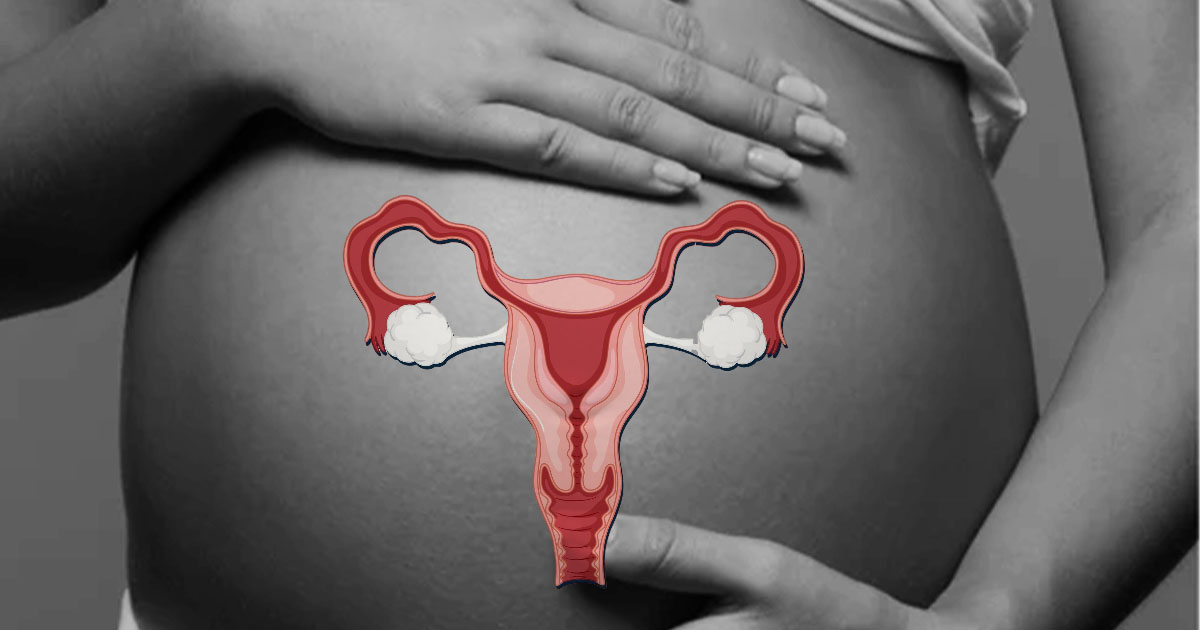Women suffering from polycystic ovary syndrome (PCOS) often face difficulties when conceiving a baby and starting a family. If you are suffering from PCOS, we invite you to follow this guide on how to become pregnant with PCOS.
Research in American Families indicates that approximately 12% of individuals in their childbearing years grapple with Polycystic Ovary Syndrome.
So, if you’re in the same boat, figuring out the best ways to handle PCOS and boost your chances of getting pregnant is essential.
Let’s explore some straightforward tips to make your journey to parenthood a bit smoother.
What is PCOS?
Polycystic ovary syndrome (PCOS) is a common hormonal disorder that affects people with ovaries. One of the symptoms of PCOS is irregular ovulation or anovulation (lack of ovulation), which can make it more challenging for some individuals to conceive.
However, it’s important to note that PCOS affects individuals differently, and not everyone with PCOS will experience fertility issues. Therefore, you need to aware that learning how to become pregnant with pcos involves learning your own patterns.
Some people with PCOS can conceive naturally, while others may require medical assistance, such as fertility treatments, to help with ovulation and increase the chances of getting pregnant.
Being overweight is linked to PCOS, but here’s the thing: many women with a normal weight have PCOS, and not all overweight women suffer from PCOS.
Read More: Understand What Is Parenting And Discover The Most Important Parenting Skills
Getting Pregnant With Polycystic Ovaries
Getting pregnant with polycystic ovaries can be a bit tricky.

Here are some of the challenges you might face:
1. Not Regular Ovulation
PCOS can mess with your normal ovulation, making it harder to know when is the best time to get pregnant.
2. Hormonal Imbalances
PCOS causes imbalances in your hormones, especially ones called androgens, which can affect how your reproductive system works.
Read More: What Are Hormones? Types, Functions & Disorders – Mind Help
3. Not Releasing Eggs
Some people with PCOS might not release an egg during their menstrual cycle, making it even more challenging to get pregnant.
4. Trouble with Insulin
PCOS is often linked to a problem called insulin resistance, which can lead to weight gain and affect how your body handles pregnancy.
Read More: Beyond Blood Sugar: The Mental Health Toll Of Type 2 Diabetes
5. Higher Risk of Miscarriage
There’s a bit higher chance of miscarriage for people with PCOS, which can add emotional stress when trying to get pregnant.
Read More: Postpartum Depression – 26 Signs, Causes, Effects, Treatment
Even though it might seem tough, many people with PCOS do become pregnant with the right strategies and support.
How To Become Pregnant With PCOS
Becoming a parent with PCOS may pose challenges, but there are strategies to enhance your chances of conceiving.
Here’s a guide on how to become pregnant with pcos:
1. Understand Your Cycle
Track your menstrual cycle to identify fertile periods, even though it might be irregular with PCOS. This can help you time conception more accurately.
Understanding your cycle sheds light on your unique fertility window. This insight is especially valuable for those with irregular cycles associated with PCOS.
By tracking your own cycle it can help you develop organic plans for how to naturally get pregnant with pcos.
Tracking your cycle provides valuable data for healthcare professionals. It aids in assessing the effectiveness of interventions and optimizing fertility treatment plans for getting pregnant with polycystic ovaries.
Read More: Self Care For Parents: Why Is It Important?
2. Healthy Lifestyle Choices
According to research, even a modest weight loss of 5% to 10% can have remarkable benefits—restoring normal ovulation cycles and substantially improving the odds of pregnancy.

Maintain a healthy weight through a balanced diet and regular exercise. Lifestyle changes can positively impact hormonal balance and increase fertility.
Additionally, weight loss has been associated with improvements in treating hirsutism, addressing concerns related to excess hair growth.
Read More: 10 Ways Weight Loss Boosts Mental Health
3. Consult with a Healthcare Professional
Seek guidance from a healthcare provider, preferably one specializing in reproductive health or fertility. They can provide personalized advice and discuss potential medical interventions.
Read More: Enhancing Fertility Through Yoga: World Yoga Day 2023
4. Manage Insulin Resistance
Insulin, a hormone that regulates blood sugar, plays a significant role in reproductive health. In the context of PCOS, insulin resistance occurs, leading to an imbalance in blood sugar levels.
This imbalance triggers an overproduction of insulin, which, in turn, can disrupt hormonal pathways, affecting the menstrual cycle and ovulation.
If insulin resistance is a concern, focus on a diet rich in whole foods, low in processed sugar, and engage in regular physical activity to help manage weight and insulin levels.
Read More: Why Women Crave Chocolate And Junk Food?
5. Reduce Stress
When stress levels soar, the body may produce elevated cortisol, affecting reproductive hormones like estrogen and progesterone.
This hormonal imbalance can lead to irregular ovulation or even anovulation, making conception more challenging.
Incorporate stress-reducing activities into your routine, as stress can impact hormonal balance. Practices such as yoga, meditation, or deep breathing may be helpful.
Read More: Stress Management 101: Techniques And Tips To Cope Better
6. Regular Check-ups
Stay in touch with your healthcare provider for regular check-ups and adjustments to your plan based on your progress.
Healthcare providers can offer personalized guidance based on your specific situation. This ensures that your plan for conceiving is tailored to your unique needs. For individuals using medications or interventions, regular check-ups allow for adjustments in dosage or treatment plans to enhance effectiveness.
Remember, each person’s journey with PCOS is unique. By combining these strategies with effective medicine for pcos to get pregnant, you can build towards a more hopeful future!
Read More: 10 Devastating Life-Altering Long Term Effects of Premature Birth
Medicine For PCOS To Get Pregnant
Addressing fertility challenges in women with PCOS often involves medications, with clomifene being a primary recommendation.
Knowing how these medication work can help you towards how to become pregnant with pcos .
If clomifene proves ineffective, metformin may be suggested. While typically used for type 2 diabetes, metformin can benefit PCOS by regulating insulin, promoting regular periods, and reducing miscarriage risk.
Its off-label use acknowledges its potential in managing PCOS symptoms and fostering fertility. Letrozole, an alternative medicine for pcos to get pregnant, is also employed, although its use for fertility treatment is off-label.
In certain cases, gonadotrophins via injection may be considered if oral medications prove unsuccessful, with caution due to the heightened risk of ovarian overstimulation and multiple pregnancies.
Read More: What Are Parenting Styles? Explore Different Types Of Parenting Styles And It’s Impact On Children
Now, let’s explore how to naturally get pregnant with pcos.
How To Naturally Get Pregnant With PCOS
Getting pregnant with PCOS doesn’t always mean relying on medications. A combination of lifestyle changes and natural approaches can significantly enhance your chances of conception.
Swap out sugary foods, simple carbs, and unhealthy fats for healthier options such as fresh fruits, vegetables, whole grains (like brown rice and oats), legumes, chicken, and fish.
Essential vitamins and minerals play a key role in a healthy pregnancy, so consult your doctor about suitable supplements.
These may include:
- Folic Acid
- Vitamin B6
- Vitamin B12
- Vitamin C
- Vitamin D
- Vitamin E
- Coenzyme Q10.
If you’re dealing with PCOS and aiming to get pregnant, in vitro fertilization (IVF) might be a viable option. A fertility doctor will conduct a thorough checkup involving blood tests, ultrasound scans, and a physical exam.
While the IVF process can span months or even years, research indicates that women with PCOS exhibit a high success rate with this treatment. Some studies suggest that those who took birth control pills before IVF had improved outcomes.
Read More: Holistic Health: 6 Types Of Holistic Health Treatments
A Word From Mind Family
if you’re on the journey to becoming a parent with PCOS, there’s hope and support available. Understanding your body’s cycle, making healthy choices, and consulting with a healthcare professional are crucial steps in how to become pregnant with pcos.
While medications and treatments like IVF can be helpful, it’s reassuring to know that natural approaches, such as a balanced diet and essential vitamins, can also play a significant role. Remember, every person’s experience is unique, and with the right blend of strategies and guidance, the path to parenthood becomes more manageable.
Don’t hesitate to seek support, and know that you’re not alone. Your hopeful beginnings are within reach.
Read More: What Are Baby Blues? 13 Signs And Tips To Recover From It
Frequently Asked Questions (FAQs)
1. How to become pregnant with pcos?
Navigating pregnancy with PCOS involves closely monitoring your irregular menstrual cycle to pinpoint fertile periods. Embrace a holistic approach with a balanced diet, incorporating regular exercise, and seeking personalized advice from a reproductive health professional.
2. What are the challenges for getting pregnant with polycystic ovaries?
The hurdles include irregular ovulation, hormonal imbalances, potential lack of egg release, insulin resistance, and a heightened risk of miscarriage, adding emotional stress to the journey.
3. What are the medicine for PCOS to get pregnant?
Medical interventions include clomifene to stimulate ovulation, metformin to regulate insulin, letrozole as an alternative, and considering gonadotrophins via injection in specific cases.
4. How to naturally get pregnant with pcos?
Natural approaches involve adopting a balanced diet, including fresh fruits, vegetables, whole grains, legumes, chicken, and fish. Consult with your doctor for suitable supplements, such as folic acid, vitamin B6, B12, C, D, E, and coenzyme Q10.
5. What is the length of PCOS Pregnancy?
The duration of a pregnancy for individuals with PCOS aligns with typical pregnancies, lasting around 40 weeks. However, the journey may require careful monitoring and management due to potential complications associated with PCOS, such as insulin resistance and hormonal imbalances. Regular check-ups with healthcare providers are essential to ensure a healthy pregnancy, and individual experiences may vary.

















Leave a Reply